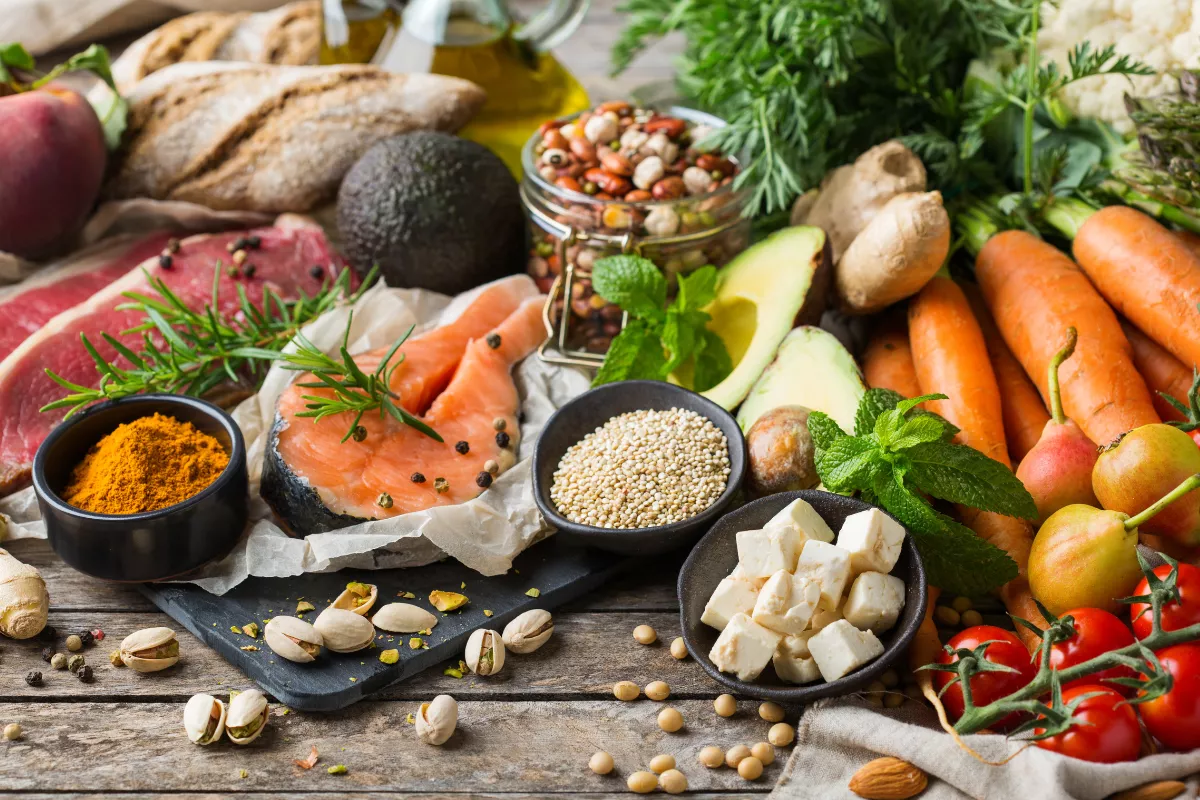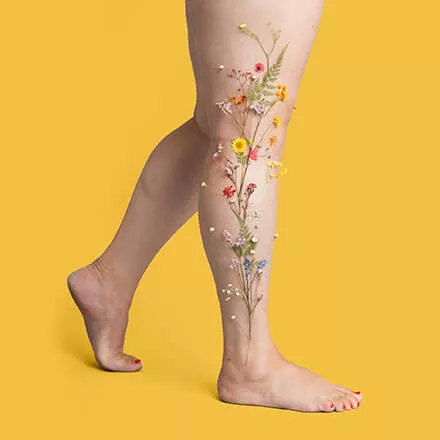The foods you eat impact every system in your body, influencing everything from blood flow to memory. A largely phytochemical diet rich in micronutrients and macronutrients promotes well-being and good health. By following this kind of diet, you will lower your risk of developing chronic diseases like Type 2 diabetes, cardiovascular disease, and certain cancers. Additionally, it will reduce the likelihood of developing conditions like varicose veins and chronic venous insufficiency.
Key Takeaways
- A balanced diet rich in nutrients like fiber, omega-3 fatty acids, vitamins, and minerals can promote vein health.
- Staying hydrated also supports vein health and circulation.
- It's important to limit processed foods, excessive sodium, and saturated fats.
- While diet can help maintain vein health, it may not reverse existing conditions like varicose veins.
- For proper diagnosis and treatment, it is recommended that you consult a vein health specialist.
Does Diet Affect Vein Health and Circulation?
Yes, diet can affect vein health and circulation. Read on to learn more about how nutrition can impact vein health, which nutrients to add to your diet, and which ones you should avoid.
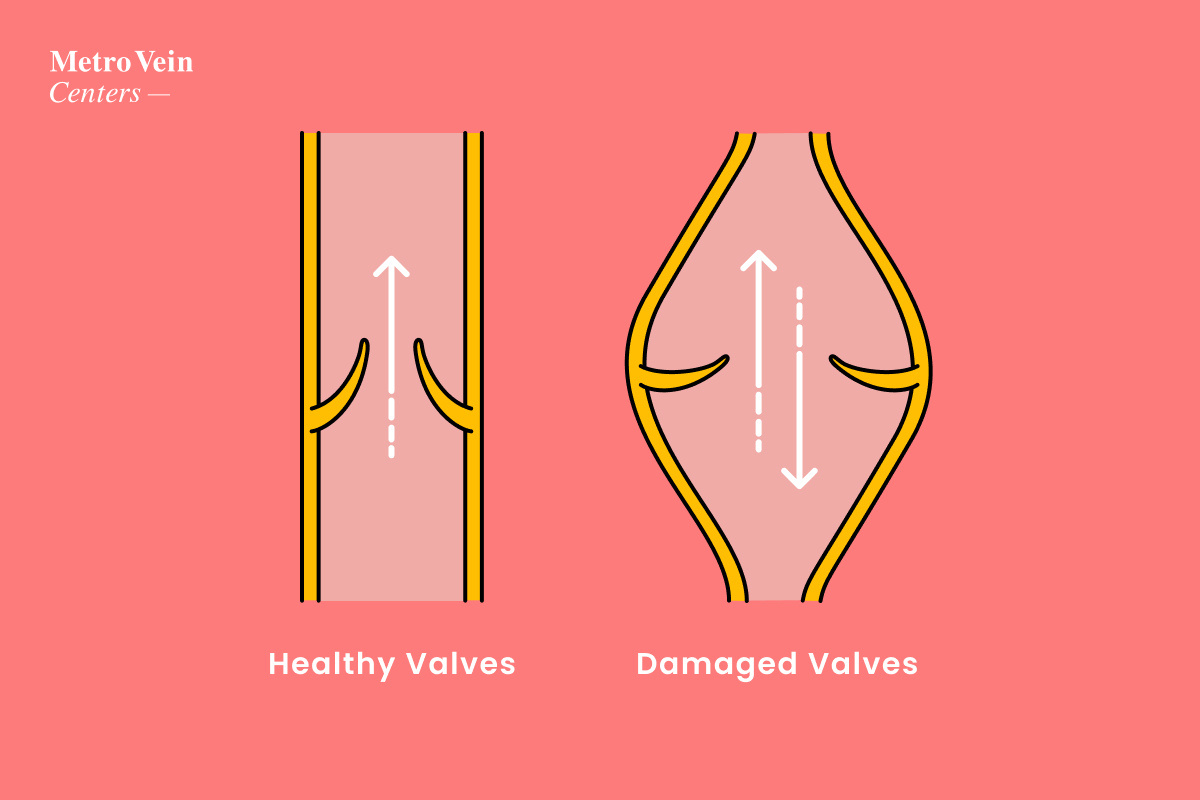
Understanding the Link Between Diet and Vein Health
A balanced diet is key to losing excess weight and maintaining a healthy weight. Beyond aesthetics, weight management is essential for vein health. Keeping your weight in check reduces strain on your veins, promotes better blood circulation, and helps prevent leg swelling.
How Nutrition Affects Circulation
Blood carries vital nutrients and oxygen-rich blood to and from your heart. A healthy diet ensures your blood contains enough of these nutrients to support the proper functioning of every major system in your body. Specific nutrients like omega-3 fatty acids, nitrates, and antioxidants support healthy circulation by lowering blood pressure and reducing the risk of developing clots or blockages throughout the arteries and veins.
Key Nutrients for Vascular Strength
Your blood vessel walls must be flexible and strong to handle blood flow pressure. To maintain this flexibility and strength, it's important to exercise regularly, maintain a healthy weight, stay hydrated, and follow a balanced diet. A diet rich in key nutrients is essential for supporting vascular strength.
These nutrients include, but aren't limited to:
- Fiber
- Vitamin C
- B-complex vitamins
- Omega-3 fatty acids
- Flavonoids and bioflavonoids
- Rutin
Top Foods for Optimal Vein Health
Foods promoting good cardiovascular health, a healthy weight, and energy are prime choices for optimal vein health. These foods contain healthy fats, antioxidants, vitamins and minerals, and heart-protective fiber.
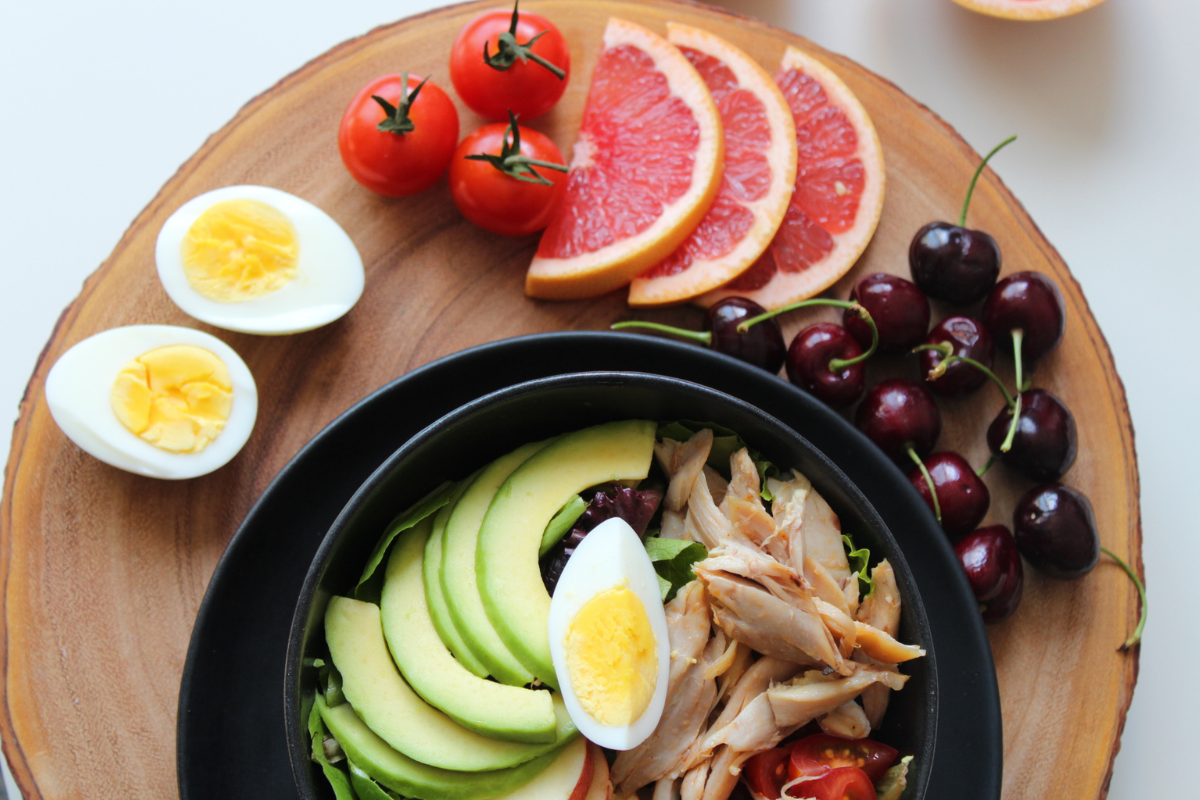
Berries and Citrus Fruits: Nature's Vein Protectors
Berries and citrus fruits are rich in vitamins A, C, and E, which also act as antioxidants. Antioxidants can help reduce cellular inflammation and damage caused by free radicals while enhancing the healing of tissues, cells, muscles, and blood vessels. Fruits high in antioxidants that promote vein health include strawberries, blackberries, grapefruit, and lemons.
Leafy Greens: Nitrate-Rich Circulation Boosters
Green leafy vegetables such as spinach and kale contain necessary chemicals called nitrates, which are converted to nitric oxide in the body. Nitric oxide is a vasodilator that widens (dilates) the blood vessels. This action is crucial, allowing blood to flow freely through the vessels. Nitrates also have a relaxing effect on the veins, helping to prevent damage over time.
Fatty Fish: Omega-3 Powerhouses
Your body requires good nutrition for vein health; this includes omega-3 fatty acids to maintain a healthy heart and brain. This essential nutrient helps prevent plaque buildup in the arteries and reduces systemic inflammation. Unfortunately, your body cannot produce omega-3s on its own, so you need to consume foods that contain them. The good news is that many foods are rich in omega-3 fatty acids, namely fatty fish like salmon, mackerel, and tuna.
Nuts and Seeds: Mineral-Rich Vein Supporters
Nuts and seeds, particularly chia seeds, walnuts, and almonds, are packed with nutrients that promote good health. They are high in fiber, which aids in digestion and supports weight loss. They are also rich in omega-3 fatty acids, which improve blood flow, reduce inflammation, and trace minerals essential for a healthy nervous system. To enjoy the vein-healthy benefits of nuts and seeds, it's best to choose them in their raw form, without added salt or sugar.

Hydration and Vein Health
Hydration is crucial for maintaining many body functions. It facilitates the transport of nutrients into cells, aids in waste elimination, and helps regulate the nervous system and body temperature. These functions make water a vital resource for overall health. Plus, staying adequately hydrated can contribute to better vein health.
The Importance of Water for Blood Flow
Staying adequately hydrated helps thin the blood, allowing it to flow easily through the veins and return to the heart. Proper hydration also promotes healthy vein elasticity, ensuring they function effectively. Conversely, the blood becomes thicker when dehydrated, contributing to distended and bulging veins. This significantly raises the risk of developing varicose veins and deep vein thrombosis (blood clots).
To avoid this complication, it's important to drink enough water every day. While the CDC no longer recommends a set number of cups per day, there are ways to ensure that you remain hydrated.
Hydrating Foods to Include in Your Diet
Foods that contain plenty of water are great for improving hydration. These foods are fresh and packed with numerous life-sustaining antioxidants and minerals.
A few hydrating foods you can incorporate into your diet for vein health include:
- Watermelon
- Oranges
- Pineapple
- Grapes
- Cucumbers
- Tomatoes
- Bell peppers
- Beetroot
Anti-Inflammatory Foods for Vein Health
Inflammation is your body's response to various stressors like disease, illness, injury, or mental strain. This response can cause significant disruption throughout your body, including your veins. To promote healthy veins, it's essential to maintain a low-inflammatory state. You can achieve this by reducing stress, staying active, and consuming plenty of anti-inflammatory foods.
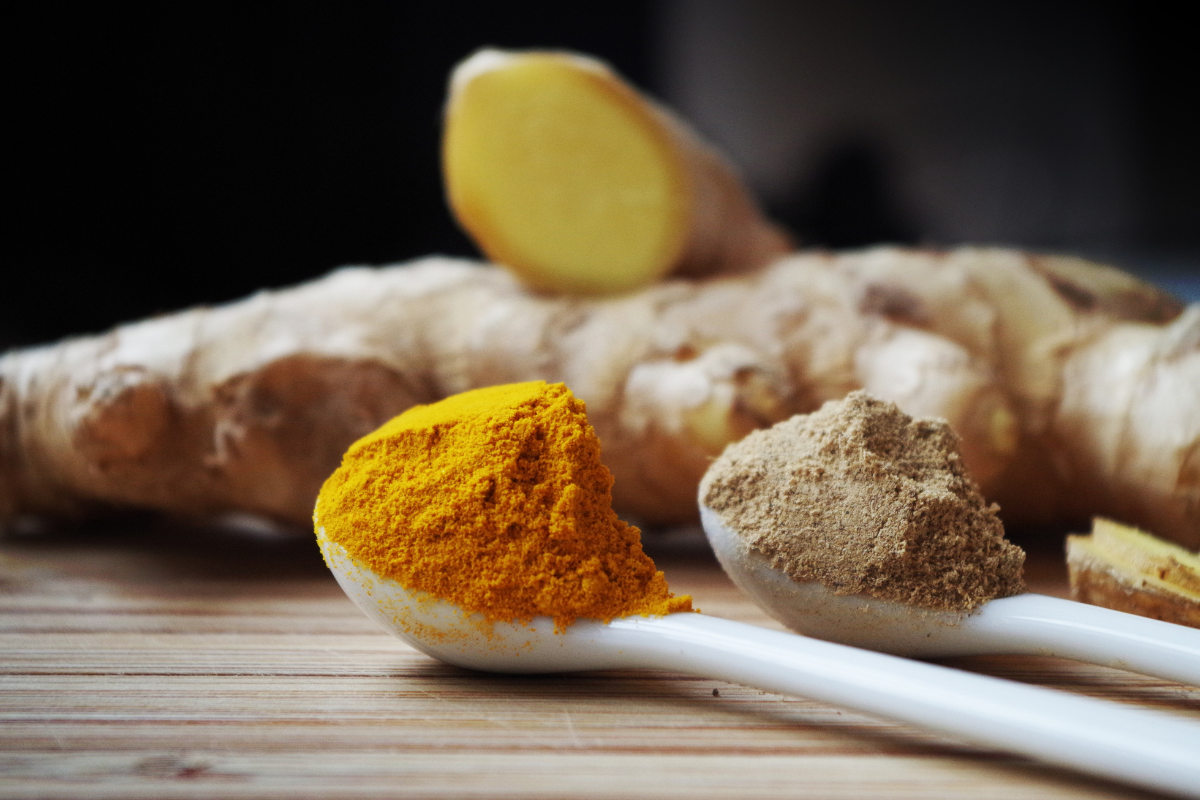
Spices and Herbs That Improve Circulation
Throughout history, people have utilized nutrition for vein health, including the use of spices and herbs. Today, healthcare practices like Ayurveda and Traditional Chinese Medicine continue to incorporate these methods. There are several spices that have been shown to enhance circulation and may help support vein health that you might already have at home.
They include:
- Cinnamon
- Turmeric (the yellow pigment in curry powder)
- Ginger
- Garlic
- Cayenne pepper
Dark Chocolate: A Sweet Treat for Your Veins
Dark chocolate contains fewer additives than milk chocolate, so it retains many heart-healthy flavonoids. Flavonoids lower inflammation and the risk of heart disease and some cancers. Recent studies have also uncovered flavonoids' potential as a supportive treatment for chronic venous insufficiency and varicose veins.

Foods to Limit for Better Vein Health
Foods can both be beneficial or harmful to your veins. Heavily processed foods, those high in saturated fats, and salt-coated snacks can cause vascular blockages and inflammation, significantly restricting blood flow. Unfortunately, these issues may not be apparent right away; many people may only become aware of them after experiencing leg pain, swelling, or ulcers. To prevent these complications, avoiding the following unhealthy foods is best.
High-Sodium Foods and Their Impact
High-sodium foods harm the entire circulatory system. They lead to water retention, which places excess pressure on the veins and impairs the dilation of your arteries. In addition, these foods can contribute to elevated blood pressure and lead to vascular damage in the long run.
Processed Foods and Vascular Health
Processed foods have ingredients added to improve their look, taste, and shelf life. Ultra-processed foods often contain excess sugar, sodium, and unhealthy fats, which can lead to inflammation, heart disease, high cholesterol, and vascular damage.
Examples of processed foods include:
- Chips
- Cookies
- Bread
- Bologna
- Hot dogs
- Ketchup
- Soda
Meal Planning for Vein Health
To maintain good vein health, follow a diet rich in fiber and low in saturated fats. Including sources high in flavonoids, such as green tea, blueberries, and citrus fruits, can also promote strong veins and blood vessels.
Sample Day of Vein-Friendly Eating
If you're interested in using nutrition for vein health but aren't sure where to start, take a look at this sample menu of vein-friendly meal ideas:
Breakfast: Whole wheat pancakes with strawberries
Lunch: Salad greens with pears, fennel, and walnuts (add grilled chicken breast for a healthy protein source)
Dinner: Chicken with creamy mushroom sauce and sautéed greens with pecans
Snack Ideas to Boost Circulation
To maintain good circulation, snack on nutrient-dense, fresh foods. These foods will include healthy fats, flavonoids, nitrates, and antioxidants.
Examples include:
- Fruit salad with mixed citrus fruit, apples, and grapes
- Small piece of dark chocolate and mixed nuts
- Smoothie containing citrus fruit, low-fat yogurt, blackberries, and protein
- Yogurt parfait made with low-fat yogurt and fresh mixed berries
- Half of an avocado stuffed with tuna salad

Supplements for Vein Health
Your body relies on specific nutrients to maintain the integrity of your vein walls and valves. Supplementing can be beneficial when you don't receive enough nutrients from your diet.
When to Consider Nutritional Supplements
Healthy individuals who follow a balanced diet may not require supplementation to keep their veins healthy. However, those who fall into one of the following categories should consider using them:
- People who follow restrictive diets.
- Individuals with food allergies or sensitivities.
- Anyone with a vitamin or mineral deficiency.
- People with gastrointestinal conditions like IBS.
- Individuals with prior vein problems.
- People with heart disease or circulatory conditions.
Essential Vitamins and Minerals for Vascular Support
Several vitamins and minerals promote vascular health by combating cellular damage, lowering cholesterol, and reducing the risk of blood clots.
They are as follows:
- Vitamin E - improves circulation
- Vitamin B2 - increases hemoglobin levels and improves anemia
- Vitamin C - improves vasodilation and blood flow
- Vitamin D - reduces the risk of calcification in the veins and vascular wall damage
- Vitamin K - reduces vascular calcification
Lifestyle Factors That Complement a Vein-Healthy Diet
Your veins depend on a steady-flowing blood supply to remain healthy and strong. Sitting or standing too long or gaining excessive weight can put pressure on the veins, causing inner valve collapse and blood pooling. The pressure from this backup leads to painful conditions like bulging varicose veins or blood clots. The good news is that you can make many lifestyle modifications to reduce these risks.

Exercise and Its Impact on Circulation
When it comes to heart-protective measures, physical activity is always top-tier. It boosts circulation, lowers blood pressure, and improves levels of high-density lipoprotein (HDL) (good cholesterol). Together, these benefits strengthen your heart while improving your overall well-being. Experts also found that regular exercise offers vascular benefits like reducing pressure on the veins and lowering the risk of blood clots.
Maintaining a Healthy Weight for Vein Health
Excess weight puts strain on your joints and organs and can restrict blood flow in your veins. Being overweight or obese are two major contributors that can lead to varicose veins. To evaluate your risk of developing varicose veins related to excess weight, calculate your Body Mass Index (BMI) using an online calculator.
If your BMI is over 24.9, you may be at risk. Bringing your weight down will reduce your Body Mass Index, putting you in a healthier category. The ideal BMI for a healthy weight is 18.5 to 24.9.
Improve Your Vein Health Today
Nutrition for vein health is essential for preventing damage. However, additional treatment measures may be necessary to reverse existing conditions like varicose veins, spider veins, or ulcers.
Call us at 866-342-2566 to schedule a free vein screening to evaluate your risk today.
Metro Vein Clinic provides these screenings at our locations in New York, New Jersey, Pennsylvania, Connecticut, Michigan, Texas, and Arizona. If you need treatment beyond nutritional changes, we offer a variety of minimally and non-invasive procedures that typically take less than 30 minutes and involve little to no downtime. Reach out to us to learn more!

Frequently Asked Questions
Can a plant-based diet improve vein health?
Including high-fiber, plant-based sources in your diet can improve your vein health. However, following a plant-based diet exclusively may increase your risk of varicose veins, especially among men.
What are the best sources of rutin for vein health?
Rutin is a plant pigment that is found in various fruits and vegetables. Good sources of rutin include apples, blueberries, buckwheat, grapes, and olives.
How does vitamin K contribute to vascular strength?
Vitamin K helps reduce inflammation throughout the body, which lowers the risk of vascular calcification. Additionally, it strengthens capillary walls, enhancing their elasticity and minimizing the likelihood of rupture. Finally, vitamin K activates matrix Gla protein (MGP), which helps decrease the risk of calcium buildup in the blood vessels.
Are there specific fruits that target varicose vein prevention?
A balanced diet that includes fruits like avocados, apples, oranges, and tomatoes may help prevent the formation of varicose veins.
Can dietary changes alone reverse venous insufficiency?
Unfortunately, making changes to your diet after developing venous insufficiency will not treat it. You must speak to a vascular specialist to determine the correct approach to treatment to prevent it from worsening.
Take the next step in your vein health journey! Book a consultation to create a personalized treatment plan tailored to your needs.

Dr. Philip LoPresti
Meet Dr. Philip LoPresti DO, DABVLM, FACS, a board-certified vein specialist and surgeon with over 20 years of experience. Schedule an appointment with him in Queens, NY today.
Meet Dr. Philip LoPresti
Trusted insight from the nationally accredited, board-certified vein doctors at Metro Vein Centers.


